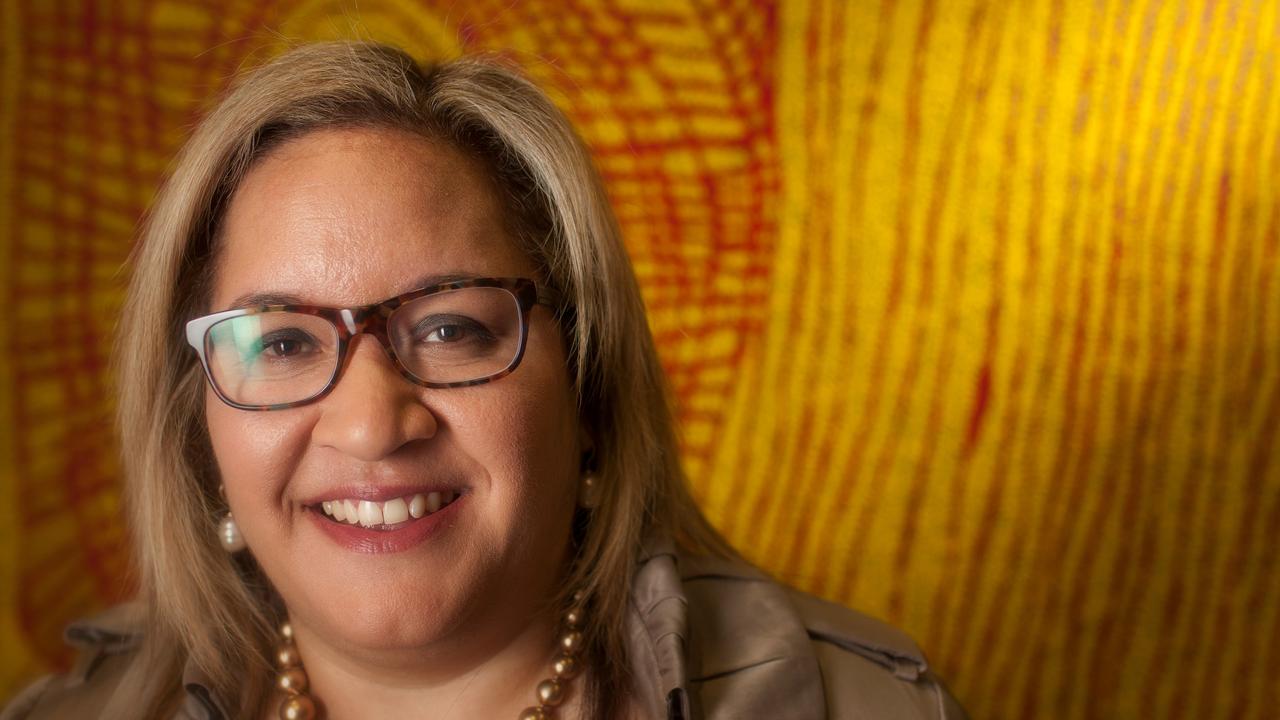Opinion: Australia Day date change would not solve the biggest issue
Simply changing the date will not address the more complex underlying issue that drives anti-Australia Day sentiment, writes Professor Megan Davis.
Opinion
Don't miss out on the headlines from Opinion. Followed categories will be added to My News.
The polls suggest momentum is in favour of changing the date of the annual public holiday known variously as Australia Day, Invasion Day or Survival Day. But I am no fan of changing the date – because that will not resolve the issue that is at the heart of growing community solidarity for First Nations on Australia Day: the unresolved original grievance.
Senator Patrick Dodson once referred to this as “unfinished business” – the unresolved issue of Aboriginal sovereignty and recognition of dispossession. The High Court decision in Mabo did not resolve this. Indeed, the court and the Federal Court have said this needs to be resolved by the parliament.
Changing the date is akin to lipstick on a pig. It moves the date but doesn’t address the more complex underlying issue that drives anti-Australia Day sentiment, and that is the place of First Nations people in our nation.

This will be the fifth year since First Nations people from all points of the southern sky gathered to discuss an offer on the table given to us by the commonwealth for constitutional recognition. While the state governments have all included symbolic recognition in their constitutions (which are ordinary acts of parliament), recognition in the commonwealth Constitution would be a different thing.
This offer had been made in 1999 with the republic referendum preamble, and again by prime minister John Howard in the lead-up to the 2007 federal election. The offer of more substantive recognition was put on the table by prime minister Julia Gillard at the behest of the Greens and the independent Rob Oakeshott and Tony Windsor. And from 2011 to 2021, we have had a lengthy, transparent, public commonwealth-led process on constitutional recognition.
After a decade, we have had seven processes and nine reports on this matter – a lot of policy work for, so far, little outcome. But for a policy agenda, this one has touched more of us than most. Of the 3000 submissions to the Wyatt voice design process, 90 per cent supported a referendum on a voice.
The Uluru Statement from the Heart is a law reform proposal that was issued to the Australian people on May 27, 2017. It was issued as an “invitation” to walk with us to a referendum, just as Australians did in 1967. It cuts through divisions to reach the one unifying factor that many Australians agree on, and have experienced most acutely during Covid-19 – and that is our politicians continually letting us down and not listening to the Australian people.
The Uluru statement seeks a primary reform – the right to be heard. It calls for a constitutionally protected voice to parliament for First Nations people. It presents a vision for the nation that is anchored in the ancient cultures of this continent. It combines better indigenous participation in the democratic life of the state, as Aboriginal advocates have been asking for over a century, with the agency of a national referendum. This proposal has polled consistently over 50 per cent in the four years since Uluru.
The voice to parliament is in effect a duty to consult First Nations on laws and policies that impact them. Closing the Gap is decade-long evidence that this does not happen now. The bushfires and the vaccine rollout are recent evidence that First Nations are excluded from policy discussions on matters that impact upon them.
The ALP has committed to a referendum on a voice to parliament in its first term. The Coalition has just concluded a process – released to the public a week before Christmas – that puts more meat on the bones of a voice design, as recommended by a parliamentary inquiry. But the Wyatt report gives us enough meat on the bones already to go to a referendum in the next term of parliament.
The Aboriginal and Torres Strait Islander men and women who attended – young and old, traditional owners and cultural authority – devoted themselves to three days of a complex legal challenge. Together, they imagined how the Australian democratic system could better hear our voices while bringing together the Australian people in the act of persuading politicians – interested only in short-term political cycles – that this will make a difference to the health, education, employment and justice outcomes of First Nations people. It is a rallying call for all Australians. It is the voice to parliament referendum – more than any debate over a future republican model – that would truly unite our nation.
Professor Megan Davis is the Balnaves Chair in Constitutional Law at the UNSW.
Originally published as Opinion: Australia Day date change would not solve the biggest issue






